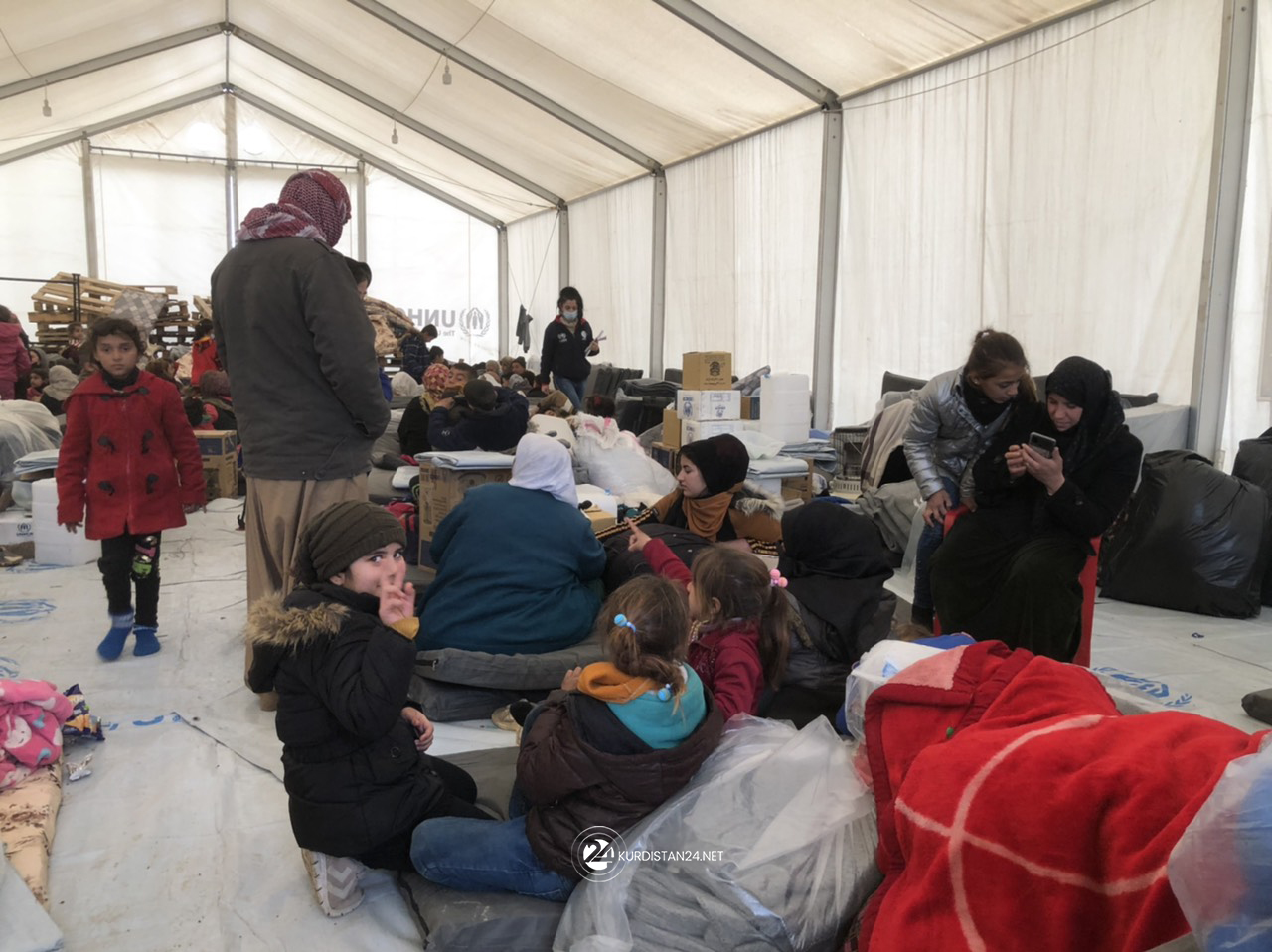Norwegian NGO says KRG welcomed Syrian Kurdish refugees but challenges remain

ERBIL (Kurdistan 24) – The Norwegian Refugee Council (NRC) said in a report on Tuesday that a quarter million Syrian refugees, (most of whom are Syrian Kurds) have largely been welcomed by the accommodating policies of the Kurdistan Regional Government (KRG).
Nevertheless, the NRC says more needs to be done to improve their economic situation.
“Their shared identity as Kurds has contributed to a high degree of social and cultural integration. However, KRI (Kurdistan Region of Iraq) is in the midst of an economic crisis," the NRC report added.
"The conflict with the Islamic State group (IS), falling oil prices, disagreements over budgetary arrangements with the Iraqi federal government, coupled with the cost of sheltering refugees and internally displaced persons (IDPs), have seen debt and unemployment rise.”
The report said the economic crisis has been magnified by the financial repercussions of the COVID-19 pandemic. “While the pandemic severely impacted Iraqis’ livelihoods, refugees have been disproportionately affected due to the reduction of jobs and wages in the informal sector, where most refugees work.”
“Since the pandemic, the income of most refugees has decreased, which resulted in a 21 percent increase in poverty among Syrian refugees in KRI,” the report said.
“At the household level, without decent work, many people are presently unable to rent adequate housing, provide food for their families, or afford healthcare, education, electricity, and transportation,” the report added.
As a result, refugee households are resorting to coping strategies, such as accruing large amounts of debt and keeping children out of school.
“They also contend with protection issues including child labor, child marriage, and sexual exploitation. Desperate for work and faced with multiple barriers finding decent jobs, refugees are forced into situations where they often experience work rights violations and have nowhere to go for redress,” the report added.
The Norwegian NGO said that, beyond addressing household issues, the future of Syrian refugees in KRI depends upon decent work opportunities that lead to economic inclusion.
“Economic inclusion can help refugees be empowered to become more resilient and self-reliant. Not wanting to remain dependent on aid, Syrian refugees wish to have sustainable livelihoods, contribute locally, and provide for their families.”
“In the current economic crisis, as micro and small enterprises are a vital driving force of economic development, this must include support for refugees’ entrepreneurship ambitions,” the report added.
“With an enabling environment for new businesses and business growth, refugees are well able to contribute to job creation and economic recovery.”
In the recommendations section of the report, the NRC called on the Kurdistan Regional Government (KRG)’s Interior Ministry to issue “a ministerial decree instructing residency directorates to extend residency permits from 1-year to 3-year duration for refugees, remove fines for late renewal of residency, and waive the cost of the required blood test.”
Moreover, it also called on the KRG to “unify the residency process for refugees across all governorates of KRI, in coordination with UNHCR on administrative instructions.”
The NRC also urged the Kurdistan Parliament to revise and pass the new Labour law that has been drafted specifically for KRI. “The new law should include provisions that are missing from the currently applicable 1987 Labour law.”
Caroline Zullo, the Policy and Advocacy Advisor for NRC Iraq, told Kurdistan 24 that “in a weakening economy, decent work opportunities are a challenge for all.”
“However, a review of existing legal frameworks related to employment rights and enforcement would allow for clarity on work protections for Syrian refugees and outline pathways to address existing gaps,” she added.
The report emphasized the particular importance of “incentiviz[ing] employers to provide signed, written contracts to all employees,” and “shift the burden of proof of whether an employment relationship exists in the absence of a written contract from the worker to the employer”.
The report futher recommended removing employment restrictions for “Syrian refugees working in professions where they have proof of required or equivalent professional training,” and urged the KRI to “permit refugees to take alternate exams to prove they meet professional standards.”
In mid-October 2020, the Iraqi Federal Government announced a plan to close displacement camps across the country.
The KRG, on its end, said it would keep the camps in the Kurdistan Region operational for as long as they were needed. However, the KRG also said it required increased international funding to do so.
Most camp residents’ basic necessities are provided by the UN, various international organizations, and Iraq's federal government. Nevertheless, the bulk of the costs are covered by the KRG.
Read More: More than 900 Syrian refugees arrive in Kurdistan Region
In early January 2022, more than 900 Syrian refugees arrived in the Kurdistan Region after leaving northeastern Syria for economic and security reasons.
In the past, Syrians were leaving their homes and entering the Kurdistan Region primarily due to conflict-related issues. Now they are leaving their homes in increasing numbers because of Syria’s dire economic situation.
